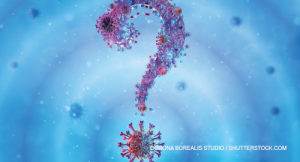 Serological testing for severe acute respiratory syndrome coronavirus 2 (SARS-CoV-2) antibodies may play a critical role in the management of the worldwide health crisis. Such testing may reveal key information for epidemiology, convalescent plasma therapies and vaccine development. However, the situation is complex, and much is unknown.
Serological testing for severe acute respiratory syndrome coronavirus 2 (SARS-CoV-2) antibodies may play a critical role in the management of the worldwide health crisis. Such testing may reveal key information for epidemiology, convalescent plasma therapies and vaccine development. However, the situation is complex, and much is unknown.
Although such testing may ultimately be used to help determine immune status, infectious disease specialists caution that such use is premature at this time. The plethora of tests currently available—many not properly validated—add to clinicians’ confusion about their appropriate use and interpretation.
Antibodies & the Immune Response
Antibodies are protective proteins produced and secreted by B cells and plasma cells in response to a foreign antigen. Among other functions, they attach to specific foreign antigens and neutralize them, facilitate phagocytosis and activate the complement system.
Individual antibodies recognize specific antigens via their variable binding sites. This phenomenon accounts for the fact that an antibody for mumps is unlikely to recognize and bind to the measles virus, due to differences in nucleic acid sequence. Cross-reactivity of antibodies may sometimes occur, however, particularly for viruses in the same family, which may share homologous sequences. Thus, a particular antibody may not differentiate SARS-CoV-2 from one of the coronaviruses that can cause common colds.1
This helps account for some cases of false positivity in serological testing for antibodies. In COVID-19, some false positive antibody testing is likely to occur from individuals’ existing antibodies to other coronaviruses that are extremely common in the population.
Based on their overall structure and roles, human antibodies are classified into five different isotypes. During acute infection, B cells typically first produce antibodies of the IgM isotype, but its levels may fall off quickly. IgG antibodies, largely responsible for long-term immunity after infection or vaccination, usually arrive a little later. Compared with IgM, IgG binds with higher specificity, and it may be detected for months or years in the blood.1
The FDA has announced it will take action against tests falsely advertised as FDA authorized that have not been granted EUA status, & it has issued a limited number of cease & desist letters.
Antibodies can also be characterized by whether they are neutralizing or non-neutralizing.
In antibody-mediated viral neutralization, antibodies in cell culture may bind to specific viral domains and prevent entry into the cell. This is the type of antibody interaction desired for long-term immune protection. Other positive antibody responses may help engage other parts of the immune system, such as encouraging phagocytosis.2
Only a small subset of the antibodies formed against the virus will be of the neutralizing type: Antibodies may have other effects. Some antibodies produced have neither positive nor negative effects on a given infection. Others may upregulate pro-inflammatory cytokines, potentially resulting in immunopathology. Even more concerning is a potential problem called antibody-dependent enhancement of infection. In this scenario, which has been documented in other viruses such as dengue, antibodies may bind to the virus and facilitate viral entry into cells.2



